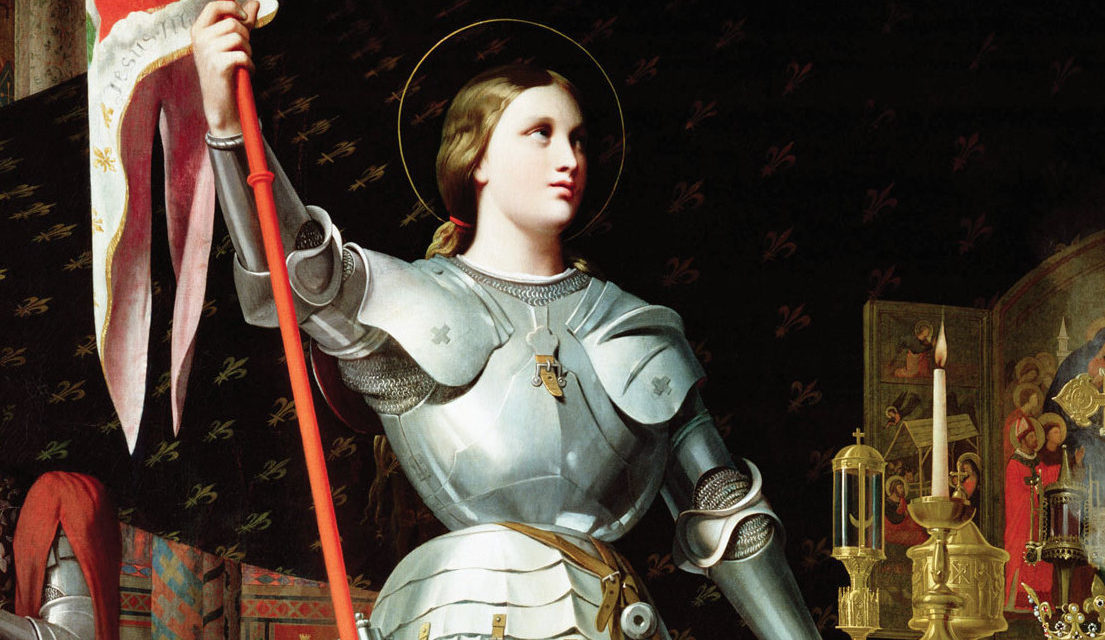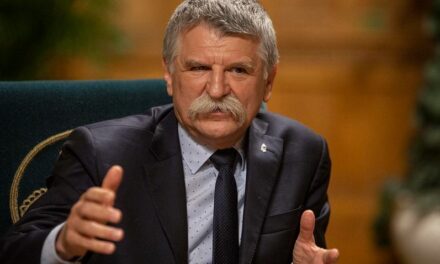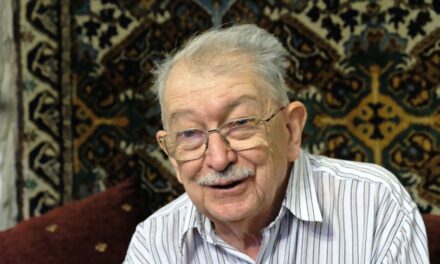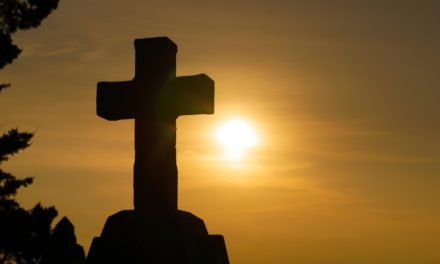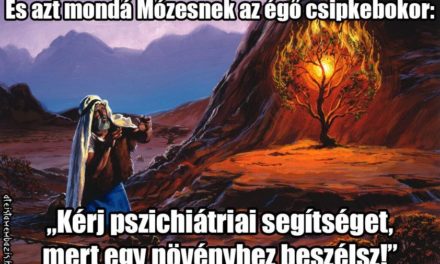The France-3 television channel took off the documentary "The Real Jeanne and the Fake Jeanne" because it was narrated by a conservative, Catholic journalist. Zoltán Pásztor's interview with Charlotte d'Ornellas in Kossuth Rádió's Vasárnapi Újság program, where the interviewee said that the present is burdened with very serious problems. There are many questions to be answered, there are many problems, but they foreshadow the need for a big leap.
There is a Hungarian national hero called János Hunyadi. He was a Turkish beater and lived in the 15th century. He was the one who stopped the Ottoman Empire and thus the Christian army won against the Turks. We still remember him as a Hungarian hero. Does the figure of Joan of Arc mean something similar to the French?
Joan of Arc has a worthy place in French culture. He is a symbol of reconciliation, a simple child of the people. He is the one who was first denounced by the Church, then canonized, who was condemned by the king, and then placed next to him. He is the one who connects French history through the centuries. And he is the one who connects the French as well. In Orléans, where I was born, he is still the most important figure. We used to call this region, Orléans and its surroundings, as the heart of France. But not only here, but in all of France. he is even respected beyond borders. In other words, he is perhaps the most important figure in our history.
So you were born in Orléans. How is the memory of Joan of Arc cherished there?
"We have something special." In 1429, Jeanne liberated the city, which had been occupied by the English. Hearing divine voices, he learned that he had a mission, that he had to liberate his homeland. Out of gratitude, Orléans held a procession one year after his death, and this custom has been in place ever since, that is, since 1430. 600 years ago at the beginning of May, the city chooses a young Orléans girl to put on the breastplate, mount a horse and lead the procession. Behind him is the city and the population, which even after all this time respects him and thanks him for their freedom. I think it's fantastic, as well as the fact that the local bishop and the city administration and the military celebrate together with the people. The French may have sometimes forgotten him, but the Orléans never did. As a girl from Orléans, I pay her a lot of respect and her figure still inspires me today.
Do we know that you were also once chosen as Joan of Arc in 2002?
– Yes, and it is not easy to win such a title. You have to submit an application, you have to prove that you were born in Orléans and that you lived in the city for at least 10 years. You have to be a Christian, a devout Catholic. And you have to be charitable, that is, help others selflessly. The mayor, his two deputies, the bishop, the city's military commander and former Joans of Arc select the winner of that year. It is an unforgettable memory, as well as the fact that we can learn more about the courage, virtues and steadfastness of this girl with unparalleled abilities, who can still be an example even today in 2021.
A documentary about the girl was made for this year, you were the voice of this work, but at the last moment the public television took it off the program because you provided the voice for it, and because you are an employee of a conservative newspaper and because you are a Catholic journalist known for her religiosity. He said before the interview that he didn't want to comment on the channel's move, but I'm curious about the film. What else can they show about Joan of Arc?
– Three previous Joans of Arc lent their voices to this film, and I was one of them. Fortunately, the work can be viewed on the YouTube channel, which was created as a summary of the celebrations of the past years and commissioned by the mayor.
How is the current winner selected from among the candidates? What happens during the holiday, which lasts for 15 days?
- We made the film because there was no real commemoration either last year or this year due to the coronavirus. Our goal was that people who have never participated in the holiday and have no historical knowledge of this period can see what is happening.
He mentioned that it could be Jeanne d'Arc, who was born in Orléans, a Catholic and a believer. What is strange is that when I look at the published articles about you, they always add Christian, Catholic after your name. We also have many Christians and Catholics, but we never add the adjective to their names. What is this for?
- In France, for a very long time - for centuries - everything was based on Christian traditions, but for some time there has been a separation of laicity, state and church. Secularism could also be based on Christian traditions, but in France it rests on very strict principles. Anyway, this is hard for me to bear, all people should be respected and should not be locked in a box. Yes, religion and Catholicism are important to me, but I don't need to be locked up somewhere. Religion, religiosity, is a difficult topic in France, especially since 1905. Recently, it has become especially mainstream, because we talk a lot about Islam. This is what the debates are about, in everyday speech, since the future of France depends on them. That is why religious issues have surfaced recently, and it is a fact that recently it has become a practice to identify people based on this. This is shocking, since before it was precisely the case that we did not indicate his religion when we were talking about a person. Of course, I don't hide this, I'm even proud of it, but I can imagine that this distinction may seem strange abroad, since the French secular vision is quite unique in the world, and it has a very strange effect.
Are there many Joans of Arc in France today?
– I really hope that many people have the humility and patriotism that characterized the girl from Orléans. He was faithful and brave to God and his country. I think yes, today's French youth have the same moral standards and ambitions, yes, I hope that Jeanne is a model for many people.
You are a teacher, a journalist, you recently filmed a film about the persecution of Christians in the Middle East, you interviewed Syrian President Assad, and you give a lot of interviews. Where do you see France going? What we read in Hungary is that a few days ago, in the newspaper in which you write, 20 professional soldiers addressed an open letter to President Macron against the spread of Islamization. According to a survey, 60 percent of French people agree with this letter. Then we see that the president wants to open to the right, he is taking more and more right-wing politicians into the government, according to a French pollster, in the near future there will be a strong opening to the right in Western countries, so in the midst of such news, how do you see the future of your country?
– It is difficult to answer this question, but people are slowly realizing, I hope, how big the problem is with public safety and the advance of Islam. There were many people who warned about this before, but they were not taken seriously. Or they didn't want to. Today, however, it is a fact in certain areas that society has remained completely uncontrolled. Today, more and more people realize how big the problem is in France, there is great unrest and hopelessness. People are tired of it all and see their future situation as dramatic. We don't know where the direction will be, it's even a question of whether there is a direction at all. Many of us see that the government has slipped out of the politicians' hands. Nevertheless, we believe that this is a wonderful country with a fantastic history and culture. The knowledge we received from our ancestors must be passed on to the next generation. The question is how many there will be who think this way. We see that in French history the new winds sometimes had to blow for a long time, and then they turned into a storm. In any case, the present is burdened with very serious problems. There are a lot of questions to be answered, there are a lot of problems, but they foreshadow the need for a big leap.
At the end of the conversation, we ended up at Jean d'Arc again. Is the girl from Orleans modeled on the girl from Orleans? Do you also want to be a bit of him in the 21st century?
- Yes, she is my role model, although I'm not sure that I want to be Joan of Arc, because I don't want to seem arrogant and anachronistic. But the fact is that I take on all its qualities. Above all, I emphasize once again the loyalty with which he turned to his God and his country. His patriotism, as he encouraged the people, the completely distraught soldiers. These properties are model values. Jeanne can give inspiration in the present, I also speak to her in my prayers. He is a very important person in my life. I don't know how I want to become this Joan of Arc, but I am sure that I want to resemble her with my qualities.
Source: Kossuth Rádió, hirado.hu
the full interview HERE !
Cover photo: Jeanne D'arc VII. At the Coronation of Charles (Jean Auguste Dominique Ingres, 1854) - detail

